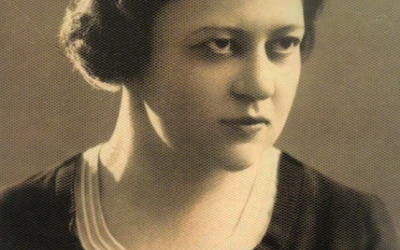Debora Vogel Editor's Note: To celebrate the launch this month of Anastasiya Lyubas's Blooming Spaces: The Collected Poetry, Prose, Critical Writing, and Letters of Debora Vogel, Consequence Forum commissioned new translations of Vogel's writing about war which we...

Debora (1900-1942) was a Polish-Jewish writer, philosopher, art critic, and translator. She was a “wandering star” of Polish and Yiddish Modernisms in Eastern Europe and North America, her writing suggesting comparisons to Gertrude Stein’s in its striking originality. Born in Lviv, she was educated in Vienna and Kraków, and travelled extensively in Paris, Berlin and Stockholm, which is reflected in her work. A friend of Bruno Schulz, she was an extraordinary figure crossing physical, aesthetic, national, linguistic, and cultural borders. Given her engagement with visual arts and avant-garde movements, her highly experimental texts challenged every notion of writing in Yiddish in her own lifetime. Her poems from Day Figures (1930) provide examples of Cubist-Constructivist experimentation in a language that is at once lyrical and philosophical. Aaron Glanz-Leyeles, an Introspectivist poet, called Day Figures “the ultimate modern book…proving that Lviv is very close to New York.”
Anastasiya holds a Ph.D. (2018) and an MA (2014) in Comparative Literature from Binghamton University, as well as an MA (2011) in Linguistics and a BA (2010) in English Language and Literature from Lviv National University in the Ukraine. Her doctoral dissertation, “Language and Plasticity in Debora Vogel’s Modernist Poetics,” was supported by the Institute for Advanced Studies in the Humanities.
